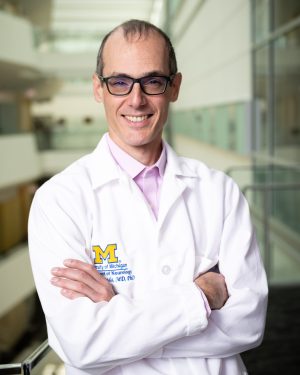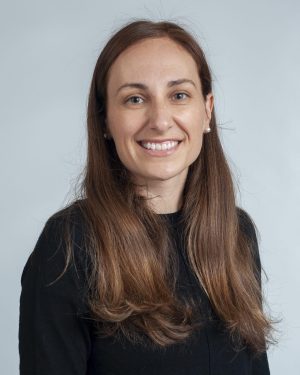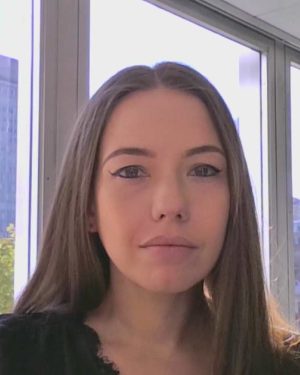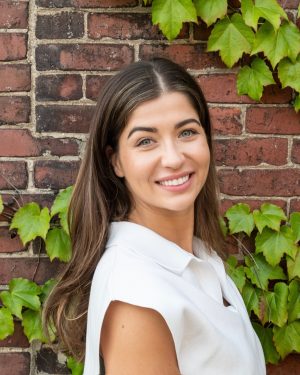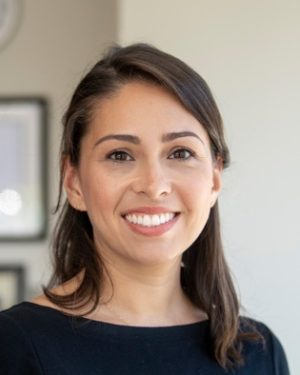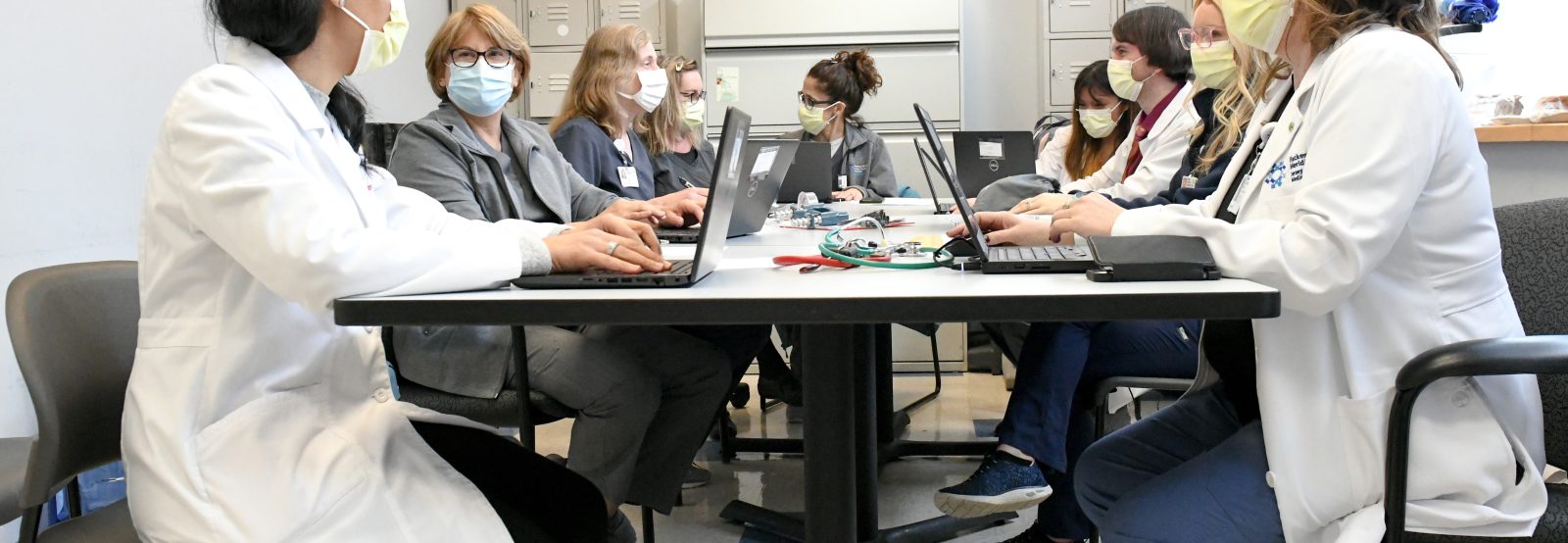
Our Structure
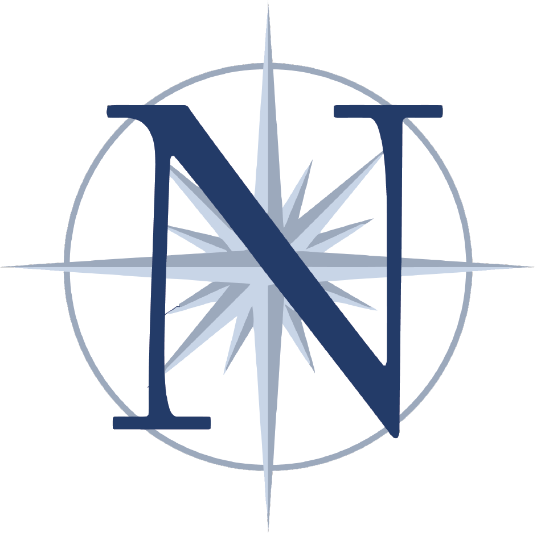
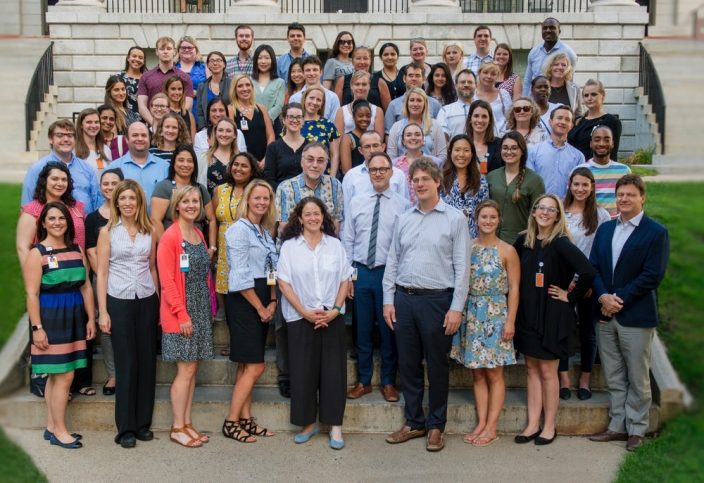
Our Membership
NEALS member sites are medical institutions equipped to perform research and clinical trials in Amyotrophic Lateral Sclerosis (ALS) and motor neuron diseases. The Network for Excellence in ALS (NEALS) is an international group with over 150 member sites, including centers in Japan, Lebanon, Israel, Mexico, Canada, Australia, India and Italy.
Coordinating Centers
NEALS has developed a strong infrastructure that facilitates rapid institution and support of trials sponsored by industry, foundations, and federal granting agencies. The NEALS Coordinating Centers include the Clinical Coordination Center (CCC) and the Data Coordination Center (DCC) located at the Neurological Clinical Research Institute at Massachusetts General Hospital (MGH-NCRI), as well as the Outcomes and Monitoring Center at Barrow Neurological Institute. A sponsor may contract with a NEALS Coordination Center to manage an entire trial or just a portion of the work.
A study does not need to utilize NEALS Coordinating Centers to be considered a NEALS-Affiliated Trial.
NEALS Committees
NEALS has established numerous committees focused on advancing ALS research and patient care. These ad hoc committees are established by the Executive Committee, as needed, or by membership proposal. Committees are chaired by NEALS members and meet throughout the calendar year. All NEALS members are encouraged to join and participate in groups of interest.
Any NEALS member who wants to form a committee can do so by sending a proposal and the committee's mission statement to the email hidden; JavaScript is required. Include the committee's objectives and a roster of NEALS members interested in participating. The establishment of any NEALS Committee is based upon final approval of the Executive Committee.

Leadership Team
-
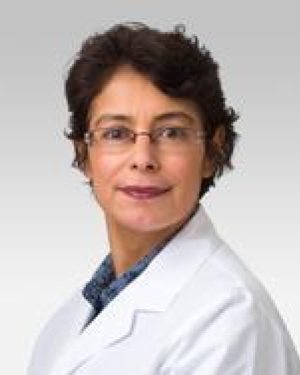
Senda Ajroud-Driss, MD
Scientific Advisory Board Member -
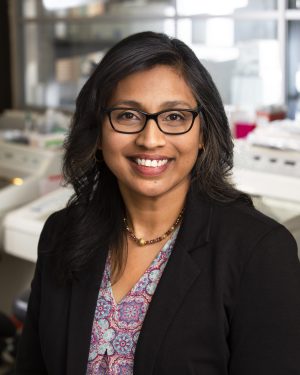
Jinsy Andrews, MD, MSc
Co-Chair and Scientific Advisory Board Member -
Sami Barmada, MD, PhD
Scientific Advisory Board Member -
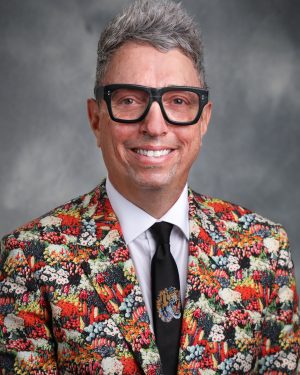
Richard Bedlack, MD, PhD
Education and Patient Engagement Chair -
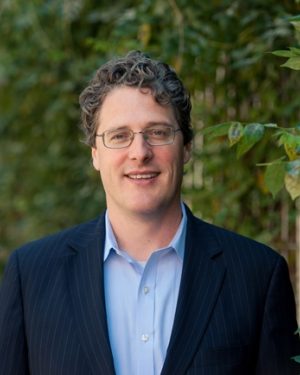
James Berry, MD, MPH
Co-Chair and Scientific Advisory Board Member -
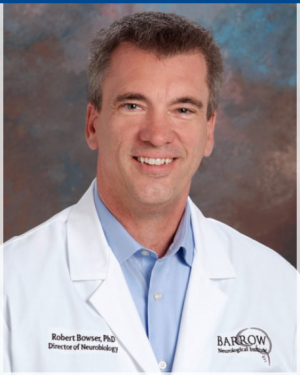
Robert Bowser, PhD
Scientific Advisory Board Member -

Robert Brown, Jr. MD, DPhil
Emeritus Scientific Advisory Board Chair -
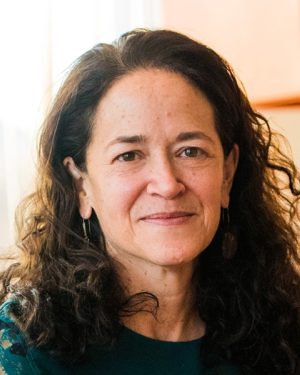
Merit Cudkowicz MD, MSc
NEALS Coordinating Center Chair and Scientific Advisory Board Member -
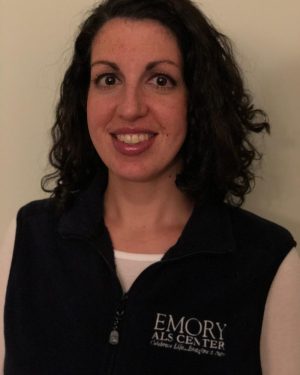
Christina Fournier, MD, MSc
Investigator Representative, Scientific Advisory Board Member -
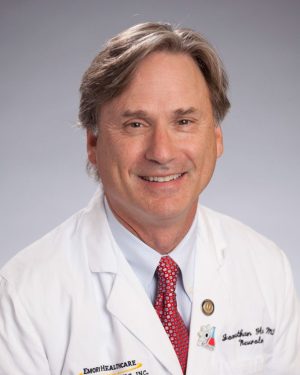
Jonathan Glass, MD
Scientific Advisory Board Member -
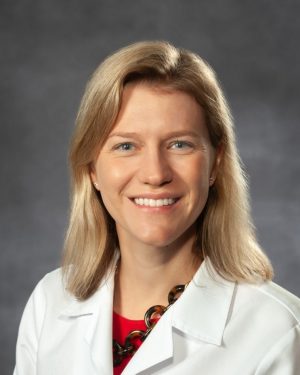
Kelly Gwathmey, MD
Investigator Representative -
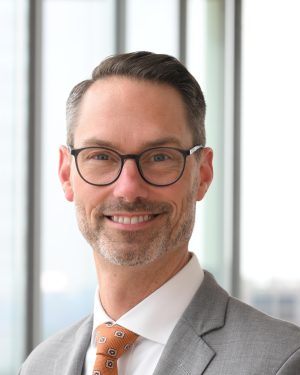
Matthew Harms, MD
Scientific Advisory Board Member -
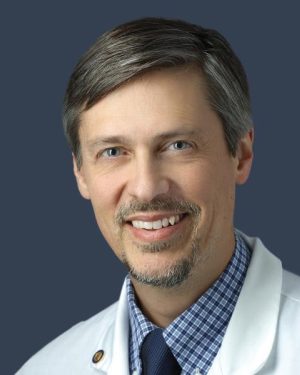
Brent T Harris, MD, PhD
Scientific Advisory Board Member -
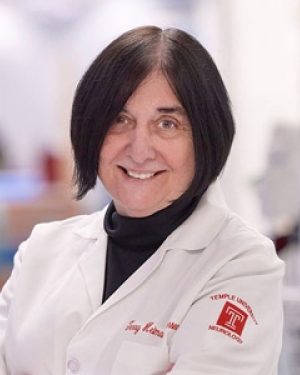
Terry Heiman-Patterson, MD
Science Communication and Publication Chair -
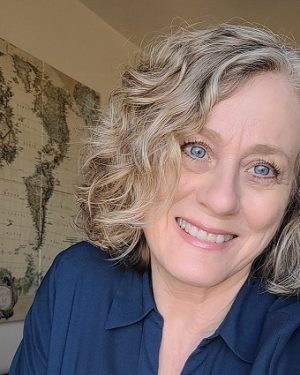
Gale Kittle, RN, MPH
Coordinator/Clinical Evaluator Representative -
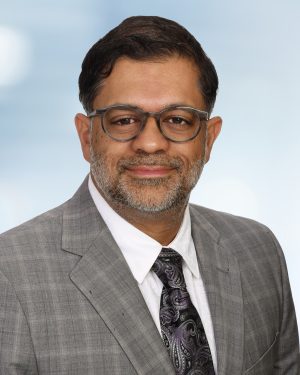
Shafeeq S. Ladha, MD
Investigator Representative -
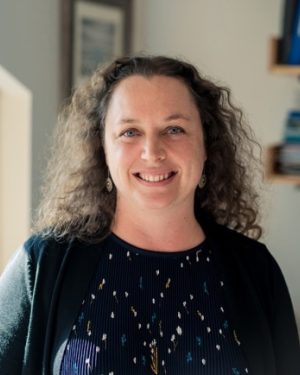
Clotilde Lagier-Tourenne MD, PhD
Scientific Advisory Board Member -
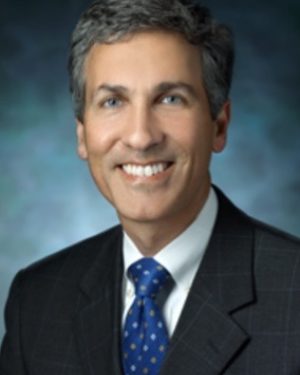
Nicholas Maragakis, MD
Scientific Advisory Board Member -

Timothy Miller, MD, PhD
Scientific Advisory Board Chair -
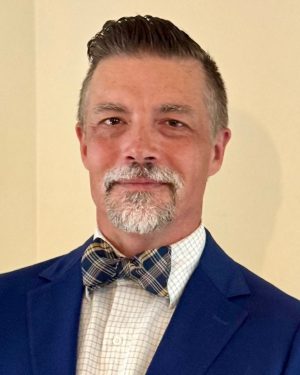
Bjorn E Oskarsson, MD
Investigator Representative -
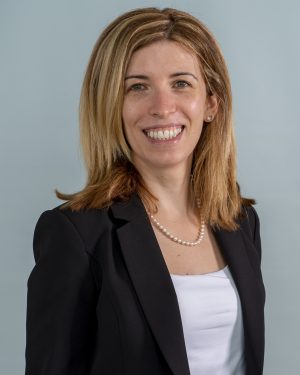
Sabrina Paganoni, MD, PhD
Scientific Advisory Board Member -
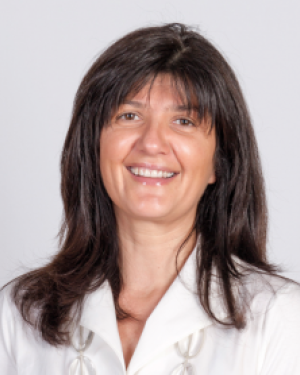
Piera Pasinelli, PhD
Scientific Advisory Board Member -
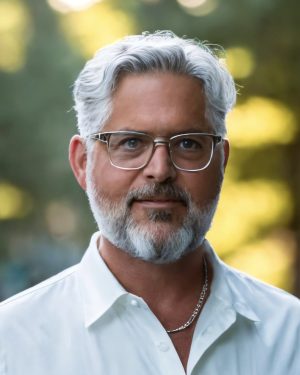
Michael J. Robinson, MD
PALS/CALS Advisor to the Executive Committee -
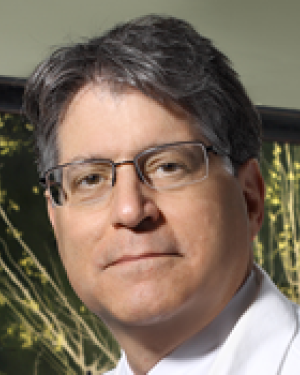
Jeffrey Rothstein MD, PhD
Scientific Advisory Board Chair -
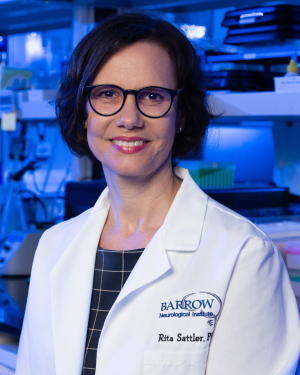
Rita Sattler, PhD, MSc
Scientific Advisory Board Member -
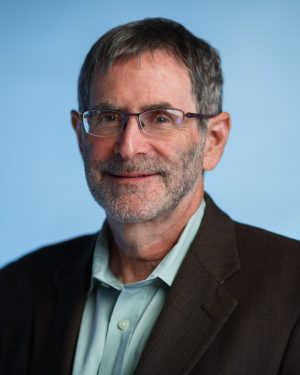
Jeremy Shefner, MD, PhD
NEALS Outcomes/Monitoring Center Chair and Scientific Advisory Board Member -

Dave Shulman, MBA
PALS/CALS Advisor to the Executive Committee -
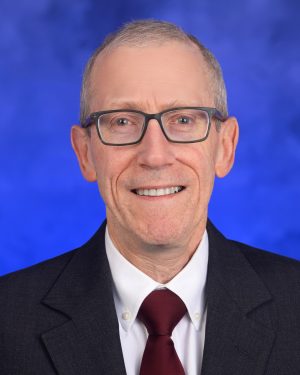
Zachary Simmons, MD
Science Communication and Publication Chair -
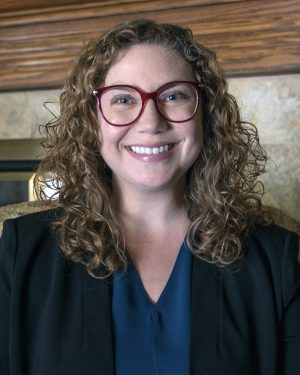
Nicole Turcotte, MPH
Coordinator/Clinical Evaluator Representative
Executive Operations Team
Senda Ajroud-Driss received her MD from the Medical School of Tunis, Tunisia, completed her neurology residency at the University of Illinois in Chicago and her neuromuscular fellowship at northwestern University. She joined the department of Neurology at Northwestern right after the fellowship. She is currently the director of the Lois Insolia ALS clinic, the MDA clinic and the neuromuscular fellowship program. She has been the PI on numerous ALS and neuromuscular clinical trials.

Jinsy Andrews, MD, MSc
Co-Chair and Scientific Advisory Board MemberJinsy A. Andrews, MD, MSc, NEALS Co-Chair, is Director of the Amyotrophic Lateral Sclerosis (ALS) Center and Medical Director of Clinical Trials in the Department of Neurology at NYU Grossman School of Medicine. She has been actively involved with the NEALS Consortium for the past 10 years, participating in multiple NEALS clinical trials. Dr. Andrews also serves as Co-Chair of the NEALS Upper Motor Neuron Disease Committee, a role she has held for the past seven years.
Prior to her current position at Columbia University, Dr. Andrews was the Head of Neuromuscular Therapeutics and Senior Director of Clinical Research and Development at Cytokinetics, Inc. overseeing international clinical research development in Amyotrophic Lateral Sclerosis and North American clinical research development in Spinal Muscular Atrophy. Prior to Cytokinetics, she was the Director of the Clinical Trials Unit and Co-director of the MDA/ALS Clinic at Hospital for Special Care in Connecticut and an Assistant Professor of Neurology at the University of Connecticut. She completed her fellowship training in Neuromuscular Disease and Clinical Neurophysiology at Columbia University and subsequently held a faculty position as an Assistant Professor of Neurology while actively participating in clinical trials and caring for patients with ALS and other neuromuscular diseases at the Eleanor and Lou Gehrig MDA/ALS Center at Columbia University. She is board certified in Neurology, Neuromuscular Disease and Electrodiagnostic Medicine.Dr. Andrews received her B.S. at Union College, her Master's Degree in Biostatistics (Patient Oriented Research) from Columbia University's Mailman School of Public Health, and her M.D. from Albany Medical College.
Dr. Barmada received his Ph.D. in the Medical Scientist Training Program at Washington University in St. Louis, and completed his neurology residency at the University of California, San Francisco (UCSF). During residency and continuing in a postdoctoral fellowship, he worked with Dr. Steve Finkbeiner at the Gladstone Institutes in San Francisco to establish faithful model systems for the study neurodegenerative conditions, including one of the first human stem cell-based models of disease. Dr. Barmada moved to the University of Michigan as an Assistant Professor of Neurology in 2013. Combining basic biology with translational research and technology development, his research centers on critical abnormalities in RNA and protein metabolism in neurodegenerative diseases such as amyotrophic lateral sclerosis (ALS) and frontotemporal dementia (FTD).
In recognition of the impact and promise of his original research, he was awarded the Young Physician Scientist Award from the American Society for Clinical Investigation in 2014, was named the distinguished Angela Dobson and Lyndon Welch Research Professorship at the University of Michigan in 2015, and received the prestigious Derek Denny Brown Award from the American Neurological Society in 2022. Dr. Barmada is the Director of the University of Michigan Brain Bank, and serves on the scientific advisory board of the Robert Packard Center for ALS Research, the Live Like Lou Foundation, Synapticure, and Ninesquare Therapeutics. He has taken an active role in raising awareness of ALS and FTD in the community, participates in several local and national fundraising efforts, and helps guide priorities for national research funding through NIH-sponsored panels.
Dr. Richard Bedlack, grew up in a small town in central Connecticut. He went to college at William and Mary in Virginia, then back to Connecticut for an MD and PhD in Neuroscience at UConn. Finally, he came to Duke where he completed his Medicine Internship, Neurology Residency, Neuromuscular Fellowship, and Masters in Clinical Research Science. He is currently a Professor of Neurology at Duke and Director of the Duke ALS Clinic. He has won awards for teaching and patient care, including best Neurology teacher at Duke, Health Care Hero, Strength Hope and Caring Award, America’s Best Doctor, the American Academy of Neurology Patient Advocate of the Year and the Rasmussen ALS Patient Advocate of the Year. He has received ALS research grants, participated in ALS clinical trials, published more than 100 ALS articles. He is leader of the international ALSUntangled program which utilizes social networking to investigate alternative and off label treatment options for patients with ALS, and leader of the ALS Reversals program which attempts to understand why some people with ALS recover from it, and to make this happen more often. He lives in Durham, North Carolina with his wife Shelly and two mischievous cats.

James Berry, MD, MPH
Co-Chair and Scientific Advisory Board MemberDr. James D. Berry, MD, MPH is the Co-Chair of NEALS and Chief of the Division of Motor Neuron Diseases at Massachusetts General Brigham. He serves as Director of the Neurological Clinical Research Institute (NCRI) at Mass General Hospital (MGH) and is a dedicated ALS clinical researcher at the Sean M. Healey and AMG Center for ALS. He holds the titles of Winthrop Family Scholar in ALS Sciences and Averill Healey Endowed Chair for ALS at MGH.
Dr. Berry has been a member of NEALS for over a decade and founded the NEALS Technology Subcommittee. He also helps oversee the NEALS Biorepository and serves as one of the multiple principal investigators of the ALL ALS Consortium (www.all-als.org). His research focuses on the development of digital and biofluid biomarkers, ALS clinical trial design and conduct, and increasing trial access for people with ALS by integrating research into clinical care.
He is actively advancing decentralized clinical trial methodologies, including the ALSFRS-RSE (ALS Functional Rating Scale – Revised for Self-Entry), accelerometry, and motor speech analysis. As an experienced clinical trialist, Dr. Berry leads trials of novel therapeutic approaches including small molecules, antisense oligonucleotides (ASOs), gene therapies, and cell-based treatments.
Dr. Berry earned his undergraduate degree from Tufts University and worked as a middle school teacher through Teach for America in Houston before attending medical school at Northwestern University. He completed his neurology residency and fellowship at Mass General Brigham.
Dr. Robert Bowser is an internationally-recognized leader in ALS research. He has contributed to pioneering efforts to discover and validate biomarkers for ALS. These biomarkers can be useful as diagnostic indicators of disease, predictors of disease progression, and also in determining the effectiveness of drugs in clinical trials. Dr. Bowser has extensive experience in the translation of basic science discoveries to the clinic to impact patient care.
As director of the Barrow ALS Research Center, Dr. Bowser directs research to determine the underlying mechanisms of ALS, identify new targets for drug treatment, develop improved therapies for ALS, and lead clinical research studies performed in numerous medical centers throughout North America.
Dr. Bowser is a graduate of Carnegie Mellon University and obtained his PhD from Yale University. He performed fellowship training at the Albert Einstein College of Medicine and was a faculty member at the University of Pittsburgh from 1994 to 2011, rising through the ranks to full professor. He joined the faculty at Barrow in 2011.

Robert Brown, Jr. MD, DPhil
Emeritus Scientific Advisory Board ChairRobert Brown, D.Phil., M.D. is the LaChance Family Chair of Neurology at the University of Massachusetts Medical School (UMMS) where he also serves as Director of the ALS Clinic, Co-Director of the Laboratory for ALS Genetics and Co-Director of the Neurotherapeutics Institute.
Dr. Brown is originally from Massachusetts. He completed a B.A. in Biophysics (Amherst College, 1969), a D.Phil. in Neurophysiology (Oxford, 1973) and an M.D. (Harvard, 1975). After completing a neurology residency at the Massachusetts General Hospital/Harvard Medical School (1980) and a research fellowship at Boston Children’s Hospital (1983), he joined the faculty at the Massachusetts General Hospital. At the MGH, he established and directed the Day Neuromuscular Research Laboratory and co-directed the Neuromuscular Clinic. In 1983 he began studies of the genetics of ALS and related disorders, jointly with colleagues at Massachusetts Institute of Technology and several universities outside of Boston. In 1998, he was awarded tenure as Professor of Neurology at Harvard Medical School. In 2008, he became the chair of neurology at UMMS.
R. Brown has a longstanding research interest in identifying gene defects that underlie ALS and related neuromuscular disorders. He was a lead member of the team that identified the first ALS gene (SOD1) and, with colleagues, has subsequently identified several other defective genes in ALS including alsin, dynactin, FUS/TLS, ErbB4 and profilin1. He has identified causative gene defects s in other disorders including limb girdle dystrophy type 2B (dysferlin), hereditary sensory neuropathy [serine palmitoyl-transferase], and hyperkalemic paralysis [skeletal muscle sodium channel]). His laboratory team has used insights from these investigations in genetics to generate cell and animal models of each of these other disorders. These models have improved our understanding of pathological processes that trigger diseases like ALS and have assisted in therapy development . He has published more than 250 peer-reviewed reports and more than 60 reviews and chapters on these topics.
Acknowledgements for these investigations have included membership in the Institute of Medicine and charter membership in the National Academy of Inventors. In 1996 he received the Sheila Essey ALS Award of the American Academy of Neurology. He is a past president of the American Neurological Association, the organization of American academic neurologists.

Merit Cudkowicz MD, MSc
NEALS Coordinating Center Chair and Scientific Advisory Board MemberDr. Merit Cudkowicz is the Chief of the Massachusetts General Hospital Neurology Service and the Julieanne Dorn Professor of Neurology at Harvard Medical School in Boston.
Dr. Cudkowicz’s research and clinical activities are dedicated to the study and treatment of patients with amyotrophic lateral sclerosis (ALS). She serves as director of the Massachusetts General Hospital ALS Clinic and the Massachusetts General Hospital Neurological Clinical Research Institute. She is one of the founders and co-directors of the Network for Excellence in ALS, a group of more than 100 clinical sites in the United States and Canada dedicated to performing collaborative, academic-led clinical ALS trials.
She is Principal Investigator of the Clinical Coordination Center for the National Institute of Neurological Disorders and Stroke’s Neurology Network of Excellence in Clinical Trials (NeuroNEXT). She is currently leading efforts at 25 different centers that conduct high-impact Phase 2 trials in neurology, hoping to speed trials by seven months to a year. The NeuroNEXT network established an academic central internal review board led by Massachusetts General and serves as a system for efficient study start-ups.
A dedicated educator, Dr. Cudkowicz mentors many young neurologists in clinical investigation of ALS and related neurodegenerative disorders. She also serves on the medical advisory board for the Muscular Dystrophy Association and the Massachusetts Amyotrophic Lateral Sclerosis Association.
Dr. Cudkowicz completed her medical degree in the Health Science and Technology program of Harvard Medical School. She served her internship at Beth Israel Hospital in New York and her neurology residency and fellowship at Massachusetts General. She also obtained a master’s degree in Clinical Epidemiology from the Harvard School of Public Health. She is fluent in Italian.

Christina Fournier, MD, MSc
Investigator Representative, Scientific Advisory Board MemberDr. Christina Fournier is an Associate Professor of Neurology at Emory University. She is the director of the Atlanta VA ALS Clinic, co-director of the Emory ALS Center, and Emory Neuromuscular Division director. Her clinical work is focused on the care of patients with ALS and neuromuscular disorders, and her research interests include improving outcome measures and research methods for ALS clinical studies. She serves as site investigator for numerous multicenter ALS clinical trials and non-interventional ALS research studies.
Jonathan D. Glass received his undergraduate degree from Middlebury College (Vermont) and his MD from the University of Vermont. He trained in Neurology and Neuropathology at Johns Hopkins Hospital in Baltimore, where he was a faculty member until being recruited to Emory University in 1996. He is widely known for his research on the pathogenesis and prevention of nerve degeneration in neurological diseases, and for his work in human and experimental neuropathology. His laboratory focuses on the study of ALS and other neurodegenerative diseases using animal models, cell cultures, and human tissues to investigate the causes and potential cures for ALS, and clinically he is a leader in discovery projects on biomarkers and genetics of ALS. He has published >175 research paper in peer-reviewed journals. Dr. Glass is Director of the Emory ALS Center, which has grown to be one of the largest clinical centers in the Southeastern United States. Dr. Glass led the recent “first-in-human” clinical trial of spinal cord stem cell transplantation for ALS, which was a groundbreaking effort that set the standard for similar trials around the world.
Dr. Glass is an active clinician who has been cited each year since 2001 as one of "America's Top Doctors" (Castle Connelly) and since 2005 as one of "Atlanta's Top Doctors" (Atlanta Magazine). He is also a teacher and mentor to young physicians and served as the director of Emory's Neurology residency training program from 2001-2006.
Kelly Gwathmey is an Associate Professor of Neurology at Virginia Commonwealth University in Richmond, Virginia. At VCU she currently serves in the capacity of Neuromuscular Division Chair, Neuromuscular Medicine Program Director and EMG Laboratory Director. Dr. Gwathmey is the director of the VCU Health ALS Clinic. Her research interests include environmental risk factors in ALS, racial differences in ALS and the study of ALS diagnostic delay.
Matthew Harms, MD is an Associate Professor of Neurology at Columbia University in New York City. Dr. Harms received his A.B. in Biology summa cum laude from Harvard University and his medical doctorate from the University of California San Francisco. He completed clinical fellowships in Neurophysiology and Neuromuscular Medicine at Washington University in St. Louis, where he post-doctoral studies focused on the genetics of motor neuron diseases in general and specifically on ALS.
Since 2015, Dr. Harms’ has been the Director of the Precision Medicine Initiative in ALS at Columbia University’s Institute for Genomic Medicine. With his team in the Motor Neuron Center and in the Eleanor and Lou Gehrig ALS Center, his lab focuses on gene identification for ALS and the use of novel bioinformatic approaches. His efforts have contributed to the identification of five ALS genes and he currently directs the “Genomic Translation for ALS Care” study, North America’s largest prospective study linking genomics to environmental exposures and outcomes. He is the co-chair of the Familial ALS/FTD Committee of NEALS and has served as a site PI for several NEALS clinical trials.
Dr. Harms is an attending in the Eleanor and Lou Gehrig ALS Center at Columbia and also sees adult and pediatric patients in the Muscular Dystrophy/SMA Center.
Dr. Harris is a tenured academic neuropathologist and physician-scientist with diverse interests and collaborations in team science studying neoplastic and neurological conditions. In his own NIH and foundation funded laboratory he investigates the pathogenesis and pathophysiology of several neurological diseases with the goal of discovering new mechanisms and targets for drug therapy. His graduate training in neuropharmacology combined with my medical training in neuropathology has allowed him to approach such diseases/conditions as ALS, FTLD, traumatic brain injury, Alzheimer disease and CNS neoplasia with an eye towards translation of basic mechanisms of disease into therapy. A major goal in his laboratory is to understand how neuroinflammation, senescence, and glial-neuronal signaling may be important in CNS aging biology and disease. Dr. Harris is the Director of Neuropathology, the Georgetown Brain Bank, and the Histopathology and Tissue Shared Resource (HTSR) at GU, co-Director for the Target ALS PM core, member of the NEALS biorepository comm, and lead neuropathologist/M-PI for the ALL ALS program.

Terry Heiman-Patterson, MD
Science Communication and Publication Chair(Temple University Lewis Katz School of Medicine)
Dr. Heiman-Patterson is a Professor of Neurology and Director of the Center for Neurodegenerative Diseases at Temple University. She also directs the MDA ALS Center of Hope and has led multiple ALS clinical trials and care initiatives, including work on genetic modifiers, pulmonary care, and Brain-Computer Interfaces. She received the Forbes Norris Award in 2015.

Gale Kittle, RN, MPH
Coordinator/Clinical Evaluator RepresentativeGale Kittle, RN, MPH has served as the Director, Outcome Measurements Training for NEALS and the Barrow Neurological Institute Clinical Research Organization (BNI CRO) for the past 7 years. She provides training and oversees the validation and certification process for core outcomes (ALSFRS-R, vital capacity, and muscle strength) employed in ALS clinical trials, including NEALS trials, the HEALEY Platform trials, and numerous sponsored trials. She is passionate about quality clinical trial outcomes and has provided training to over 1,200 ALS clinical evaluators globally. Prior to this, she helped to establish the ALS clinical trial program at the Gregory W. Fulton ALS and Neuromuscular Center at BNI in Phoenix, Arizona. Gale has over 30 years of neurological nursing experience, including 15 years of experience in both academic and industry led drug and device trials in neurodegenerative disease. She holds a Bachelor degree in Nursing from Arizona State University, and a Master of Public Health degree from the University of Arizona.
Shafeeq Ladha is the chief of the neuromuscular disease section and director of the Gregory W. Fulton ALS and Neuromuscular DIsease Center at Barrow Neurological Institute. He received his medical degree from the University of Arizona College of Medicine. He then completed neurology residency at Barrow Neurological Institute followed by fellowships in neuromuscular diseases at Mayo Clinic Rochester and EMG/Neurophysiology at Mayo Clinic Scottsdale.
In 2007 he returned to Barrow Neurological Institute where he led the MDA and ALS clinics. In 2013, through a generous gift from and in collaboration with philanthropist Ira A. Fulton, Dr. Ladha founded the Gregory W. Fulton ALS Center at Barrow which has grown to include scientists, clinicians and a large clinical research infrastructure. Through the Barrow CRO, the Fulton Center has been integral to the development and conduct of many of the ALS clinical trials being conducted today, including the Healey ALS PLatform Trial.
In addition to prioritizing compassionate, cutting edge clinical care and leading the Fulton ALS Center, Dr. Ladha has an interest in ALS biomarker discovery and understanding the inflammatory mechanisms of ALS. He has participated and led numerous ALS clinical trials and biomarker studies, and has been an active member of NEALS for more than 15 years.
_____________________

Clotilde Lagier-Tourenne MD, PhD
Scientific Advisory Board MemberClotilde Lagier-Tourenne is Associate Professor of Neurology at the Massachusetts General Hospital and Harvard Medical School. She is a member of the Sean M. Healey & AMG Center for ALS at Mass General and an associate member at the Broad Institute. She has served on the NEALS Scientific Advisory Board since 2016. She trained as a medical geneticist in France and at Columbia University. After a postdoctoral fellowship with Dr. Don Cleveland, she became Assistant Professor at UCSD in 2013, and moved to the Massachusetts General Hospital in 2015. She received the Alphonse Laveran Prize, the Milton-Safenowitz Fellowship, the MDA Career Development and Frick Foundation Awards, the 6th International Paulo Gontijo Award in Medicine, the 4th annual Jenny S. Henkel Lectureship, the 2019 Lisa S. Krivickas Lectureship, and the 2017 Grass Foundation – American Neurological Association Award in Neuroscience.
Her group investigates the molecular mechanisms driving neurodegeneration in amyotrophic lateral sclerosis (ALS), frontotemporal dementia (FTD) and Huntington’s disease. Mutations and/or cellular mislocalization of several RNA binding proteins have been identified as central components in the pathogenesis of ALS and FTD. Using innovative cellular and genomics techniques, the Lagier-Tourenne’s group explores the regulatory networks between RNA binding proteins and changes in RNA expression that occur in these diseases. The team also develops cellular and animal models to uncover mechanistic insights underlying neuronal death in ALS and FTD patients with C9ORF72 expansion, the most common genetic cause of these conditions. Clotilde has established collaborations with academic and pharmaceutical partners to develop novel approaches to therapy, including RNA-targeting antisense oligonucleotides and immunotherapies for patients with ALS and FTD. In particular, her work in collaboration with IONIS Pharmaceuticals is at the stem of the therapeutic development of antisense oligonucleotides in C9ORF72 disease and the recent initiation by Biogen of a clinical trial in ALS patients.
Dr. Maragakis is Director of the ALS Center for Cell Therapy and Regeneration Research, Co-Director of the Johns Hopkins ALS Clinic and Professor of Neurology at Johns Hopkins University. The ALS Clinic at John Hopkins is a world recognized leader in providing medical care and offering the latest in clinical trials and therapies to ALS patients.
A common theme to his research has been in the study of the astrocyte biology and its role in disease pathogenesis with a particular emphasis in how astrocytes may contribute to Amyotrophic Lateral Sclerosis (ALS).
His laboratory in collaboration with others, has been interested in the development of induced pluripotent stem cells from ALS patients. His laboratory has created over 50 iPS cell lines from familial and sporadic ALS patients as well as controls. His current efforts have been to characterize iPSC-derived motor neurons and astrocytes both in vitro and in vivo with an effort towards understanding disease mechanisms; in particular modeling ALS disease heterogeneity with regard to disease progression.
Dr. Maragakis has also been heavily involved in clinical research as the principal investigator, site principal investigator, or co-investigator of numerous clinical trials in ALS, many coordinated by the Network for Excellence in ALS on which he served as an Executive Board member and currently a member of the Scientific Advisory Board.
Dr. Maragakis has received several awards for his outstanding research efforts and received the Certification of Meaningful Use Stage 1 EHR from the Centers for Medicare& Medicaid Services (CMS) in 2013. He is member of the American Board of Psychiatry and Neurology, the American Academy of Neurology (AAN) and the Network for Excellence in ALS (NEALS).
Dr. Maragakis received his bachelors of science degree and medical degree from the University of Utah and he completed his residency and fellowship in neurology at John Hopkins University.
Timothy Miller, MD, PhD, former NEALS Co-Chair, has led the application of an antisense oligonucleotide (ASO) based therapeutic approach for neurodegenerative diseases. He pioneered cerebrospinal fluid (CSF) delivery of these ASO in animal models and then led the first in human trial for CSF ASOs in humans in amyotrophic lateral sclerosis (ALS). Dr. Miller’s work is the foundation for RNA-targeted therapies for multiple neurodegenerative diseases including ALS.
Recognizing the importance of miRNA in neurodegeneration, the Miller Lab has recently developed miRNA inhibitors and is working on moving these to human clinical trial. In addition to developing antisense oligonucleotides for neurodegeneration, he has focused on the other important aspects of novel therapeutics by demonstrating that SOD1 CSF protein is an appropriate pharmacodynamics marker and developing ways to measure SOD1 protein half-life in humans. The next SOD1 ASO trial for ALS is underway with Dr. Miller as the academic PI in collaboration with Ionis Pharmaceuticals and Biogen.
He is the David Clayson Professor of Neurology at Washington University School of Medicine in St. Louis.
Dr. Björn Oskarsson, stems from Stockholm, Sweden and he received his medical degree from University of Lund where he developed an interest in nerve regeneration. He continued his Neurology, Neuromuscular Medicine, EMG and Neuromuscular pathology training at and had his first faculty appointment at University of Colorado. Subsequently, he founded the multidisciplinary ALS clinic at University of California Davis and in 2016 he was recruited to Mayo Clinic in Florida to lead the ALS Center of Excellence. Working in collaboration with the Mayo Clinic Neuroscience department, his research focuses on understanding the basic principles of motor nerve degeneration and trying new treatments in pursuit of therapeutics that may slow, stop, or even reverse this process. His clinical focus includes the diagnosis and treatment of ALS and providing personalized medicine to improve patient outcomes. His is enthusiastic about advancing care for people with ALS. This commitment extends to the development and implementation of innovative diagnostic tools, such as neurofilament light biomarker studies and 7-Tesla MRI. His work also includes data, biofluid and tissue collection and involvement in a range of clinical trials, from single-patient antisense oligonucleotide projects to leading large-scale, international Phase III industry trials and a NINDS Expanded Access Program.
Sabrina Paganoni, MD, PhD, is the Co-Director of the Neurological Research Institute at the Massachusetts General Hospital, Assistant Professor at Harvard Medical School and physician investigator at the Healey & AMG Center for ALS at Mass General. Dr Paganoni’s research focuses on clinical trials and therapy development for ALS. She has served as Principal Investigator of several ALS clinical trials including the CENTAUR trial (a trial of AMX0035 in ALS). She is also the co-Principal Investigator of the HEALEY ALS Platform Trial, the first platform trial for ALS in the world. Her research has been funded by the NIH, non-profits, and industry; she published more than 100 peer-reviewed manuscripts and received several awards for her work including the 2021 Top 10 Clinical Research Achievement Award for the CENTAUR trial. She is also passionate about clinical care innovation and access to research for people with ALS. She co-chairs the Upper Motor Neuron Task Force, the Technology Committee and the Recruitment/Retention/Experience Committee at NEALS.
Dr. Pasinelli is the Frances & Joseph Weinberg Professor in Neuroscience at Thomas Jefferson University and the founder and Director of the Jefferson Weinberg ALS Center, a Clinical-and-Research Integrated Program.
She graduated with a dual Bachelor and Master in Science degree from the University of Milan, Italy, where she studied Chemistry and Technology in Pharmaceutical Industry and obtained her PhD in Neuro-biochemistry from the University of Utrecht, The Netherlands. She performed postdoctoral training at Massachusetts General Hospital-Harvard Medical School and, in 2006, joined Thomas Jefferson University as the co-director of the Frances & Joseph Weinberg Unit for ALS Research. In 2016, under her leadership, Jefferson expanded the ALS program adding a multidisciplinary clinic and a clinical-research program to complement the existing research laboratories and launching the Weinberg ALS Center.
Her research focuses on the cell death mechanisms that overtake the motor neurons in ALS and the role played by glia cells in disease. She also leads clinical research studies aimed at identifying disease biomarkers and new therapeutic targets.
Dr. Pasinelli has been the Scientific Director of the Robert Packard Center for ALS Research from 2008 to 2020 and now serves on the scientific advisory board of the Center. She is also member of the scientific advisory board of AriSLA and of the ALS/MND International Alliance. She is passionate about educating the ALS patients about research and over the years has taken an active role in raising awareness of ALS in the community.
Dr. Michael J. Robinson is a physician originally from Canada, with a distinguished career spanning clinical psychiatry, academic medicine, and pharmaceutical leadership. He earned his medical degree from Queen’s University in Kingston, Ontario, where he also completed his specialization in Adult Psychiatry and Child & Adolescent Psychiatry. He later pursued a fellowship in Psychosomatic Medicine at Virginia Commonwealth University before returning to Queen’s University as an Associate Professor, where he led both clinical and research initiatives.
In 2004, Dr. Robinson transitioned to the pharmaceutical industry, beginning at Eli Lilly and Company as a Clinical Research Physician. Over the following years, he advanced into key leadership roles, overseeing clinical development programs in Psychiatry and Pain. In 2013, he joined AbbVie, where he served as Vice President of Global Therapeutic Areas and subsequently as Vice President, Head of U.S. and Puerto Rico Medical Affairs, leading a team of approximately 400 professionals. Throughout his industry tenure, Dr. Robinson played a central role in the development and successful launch of multiple therapeutics across diverse therapeutic areas. His academic contributions include 28 peer-reviewed publications, two book chapters, and numerous presentations at international conferences.
In December 2015, Dr. Robinson was diagnosed with Amyotrophic Lateral Sclerosis (ALS), prompting his retirement in April 2016. Since his diagnosis, he has remained deeply engaged in ALS advocacy, serving on multiple patient advisory committees for clinical trials and collaborating with leading ALS organizations. He is currently a panelist for the Department of Defense Congressionally Directed Medical Research Program for ALS and has recently served as a reviewer for NIH ALS grant proposals. His ongoing work focuses on advancing clinical trial design, refining ALS outcome measures, and promoting research in brain-computer interface technologies.
Jeffrey D. Rothstein MD, PhD. is the John Griffin Director of the Brain Science Institute and Professor of Neurology and Neuroscience at Johns Hopkins University, Baltimore, MD, USA. He is the Founder and Director of the Robert Packard Center for ALS Research at Johns Hopkins, the largest collaborative academic organization dedicated towards understanding ALS and developing novel therapeutics and the Director of the Muscular Dystrophy Association ALS Clinic. He received a B.A. in Neuroscience from Colgate University, Johns Hopkins University, Baltimore, Maryland, USA, a Masters at the University of Chicago, Chicago IL, USA and his MD and Ph.D. in Physiology and Biophysics from the University of Illinois, Chicago, IL, USA. He did Neurology residency and neuromuscular fellowship training at Johns Hopkins University, Baltimore, MD USA. He has been the principal and/or local investigator in almost a dozen National or International trials in ALS His laboratory research interests range from basic neurobiology of CNS glia and their role in regulating neurotransmission, to the pathophysiology of neurodegenerative disease, focusing on ALS. Specifically, he uses model systems including rodent and human IPS models and human tissue to dissect the underlying mechanisms of neuronal and glial injury in ALS as a means of illuminating effective therapies. He is the author of over 250 peer-reviewed articles on basic and clinical neuroscience. He holds more than a dozen patents on candidate drugs and biomarkers for ALS and Neurodegenerative disease.
Jeffrey Rothstein’s homepages are http://neurodegenlab.org and http://www.brainscienceinstitute.org
Dr. Sattler is Professor of Translational Neuroscience at the Barrow Neurological Institute, Phoenix, AZ. Dr. Sattler is the Director of the BNI Research Education Programs and Co-Director of the Interdisciplinary Graduate Program in Neuroscience at BNI-ASU.
She received her masters and doctorate degree from the University of Toronto, Toronto, Canada and performed her postdoctoral training in the Department of Neuroscience at Johns Hopkins University. She then served as the lead scientist for a small startup biotech company for 4 years overseeing assay development and drug screening of lead compounds for Amyotrophic Lateral Sclerosis (ALS), in addition to the validation of disease biomarkers. From there, Dr. Sattler joined the Johns Hopkins University Drug Discovery Center to strengthen her expertise in preclinical drug development. With this strong translational neuroscience background, Dr. Sattler started her first faculty position as Assistant Professor in the Department of Neurology in 2012 at Johns Hopkins University, followed by her relocation to the Barrow Neurological Institute in 2015. Dr. Sattler’s research is focused on mechanisms of neurodegeneration in dementias, including Frontotemporal dementia (FTD), FTD with motor neuron dysfunction (FTD/ALS), Alzheimer’s disease and Lewy Body dementia using human disease models, including postmortem autopsy tissues and human patient-derived induced pluripotent stem cells (iPSCs) differentiated into neurons and glial cells. Dr. Sattler’s research is supported through numerous federal grants (Department of defense (DOD), National Institute of Health (NIH)) and awards from disease foundations and private donors, as well as the Barrow Neurological Foundation. She is a member of the American Society for Neuroscience and the American Society for Neurochemistry.

Jeremy Shefner, MD, PhD
NEALS Outcomes/Monitoring Center Chair and Scientific Advisory Board MemberDr. Shefner is Professor of Neurology and Chief Medical Officer for Clinical Research at the Barrow Neurological Institute in Phoenix, AZ. He is trained in neurology and clinical neurophysiology, and has devoted his clinical and research efforts to experimental therapeutics, clinical trial design, and outcome measure development primarily directed towards ALS. He received a PhD in experimental psychology from the University of Illinois in 1976, and an MD from Northwestern University in 1983. After residency and fellowship training at Harvard Medical School and the Brigham and Women's Hospital in Boston, Massachusetts, Dr. Shefner started the ALS Clinic at BWH and participated in multiple industry sponsored ALS clinical trials. He co-founded the Northeast ALS Clinical Trials Consortium (NEALS) in 1995, and co-chaired NEALS through 2013. He remains on the Executive Committee for NEALS. NEALS has grown to include more than 100 sites throughout the US and Canada, and has performed more than 50 clinical studies since 1995. Dr. Shefner has held leadership positions in many NIH and industry supported clinical trials. He has published more than 230 peer reviewed scientific articles, is neuromuscular section editor of UpToDate, and serves on the editorial board of Neurotherapeutics and the ALS Journal. He is also past Chair of the ALS Research Group and the New York Neurological Society. In 2014, he was awarded the Sheila Essey Award for ALS Research by the ALS Association and the American Academy of Neurology.
Diagnosed in May 2023 at age 44 with limb-onset ALS, Dave Shulman quickly plugged into the ALS community and uses his strategic and commercial expertise to advocate for faster, more efficient progress toward better outcomes for all families affected by ALS. Dave proudly attended the ALS Clinical Research Learning Institute at the 2023 Annual NEALS Meeting, as well as the Patient Fellows Symposium Program at the 2023 International Symposium on ALS/MND. He currently co-chairs the NIH’s AMP ALS Natural History Study Working Group, serves on the Healey ALS Platform Trial Patient Advisory Committee, and supports the broader ALS landscape with interactive tools through his website - Analyze ALS (www.als.ceo). He resides in Summit, New Jersey, with his wife, two kids and mischievous shih tzu.
Dr. Zachary Simmons received his medical degree from the University of Florida, and then trained in neurology at the University of Iowa and in neuromuscular diseases and electromyography at the University of Michigan. He is currently Professor and Vice Chair for Research in the Department of Neurology at The Pennsylvania State University, where he founded and directs the ALS Clinic and Research Center.
Dr. Simmons had served as site principal investigator for numerous clinical treatment trials and investigator-initiated studies in ALS. He has published extensively on quality of life, ethics of care, and end-of-life issues, and was the co-developer of the ALS Specific Quality of Life Instrument. The Penn State ALS Center has been a pioneer in the use of telemedicine and digital health in ALS. His ALS group at Penn State was awarded the Healey Center Gupta Family Endowed Prize for Innovation in ALS Care. He was awarded the 2024 Forbes Norris Award by the International Alliance of ALS/MND Associations and was presented with the Distinguished Researcher Award in 2025 by the American Association of Neuromuscular and Electrodiagnostic Medicine (AANEM).
Dr. Simmons was an Investigator Representative on the NEALS Leadership Team. He has been Editor-in-Chief of Muscle & Nerve since 2017. At the organizational level, in addition to his NEALS work, he has served on the Board of Directors of the AANEM and on the Ethics, Law, and Humanities Committee of the American Academy of Neurology.

Nicole Turcotte, MPH
Coordinator/Clinical Evaluator RepresentativeNicole Turcotte, MPH is a clinical research and public health professional with nearly 15 years of biomedical, social science, and community-based research experience. She received her MPH in 2010 from the Rollins School of Public Health at Emory University, where she also served as a CDC Fellow. She has worked to coordinate and manage approximately 60 clinical trials in ALS and Neuromuscular research, several of them NEALS-affiliated, at Barrow Neurological Institute since 2017, in addition to serving as NeuroNEXT site coordinator since 2018. She is active in her local ALSA chapter where she participates in their ALS 101 education sessions for those newly diagnosed on understanding research and clinical trial participation. She is also a current member of the NEALS Recruitment, Retention, and Experience in ALS Research Committee. Nicole is passionate about prioritizing both the coordinator and research participant clinical trials experiences, while maintaining data integrity.
